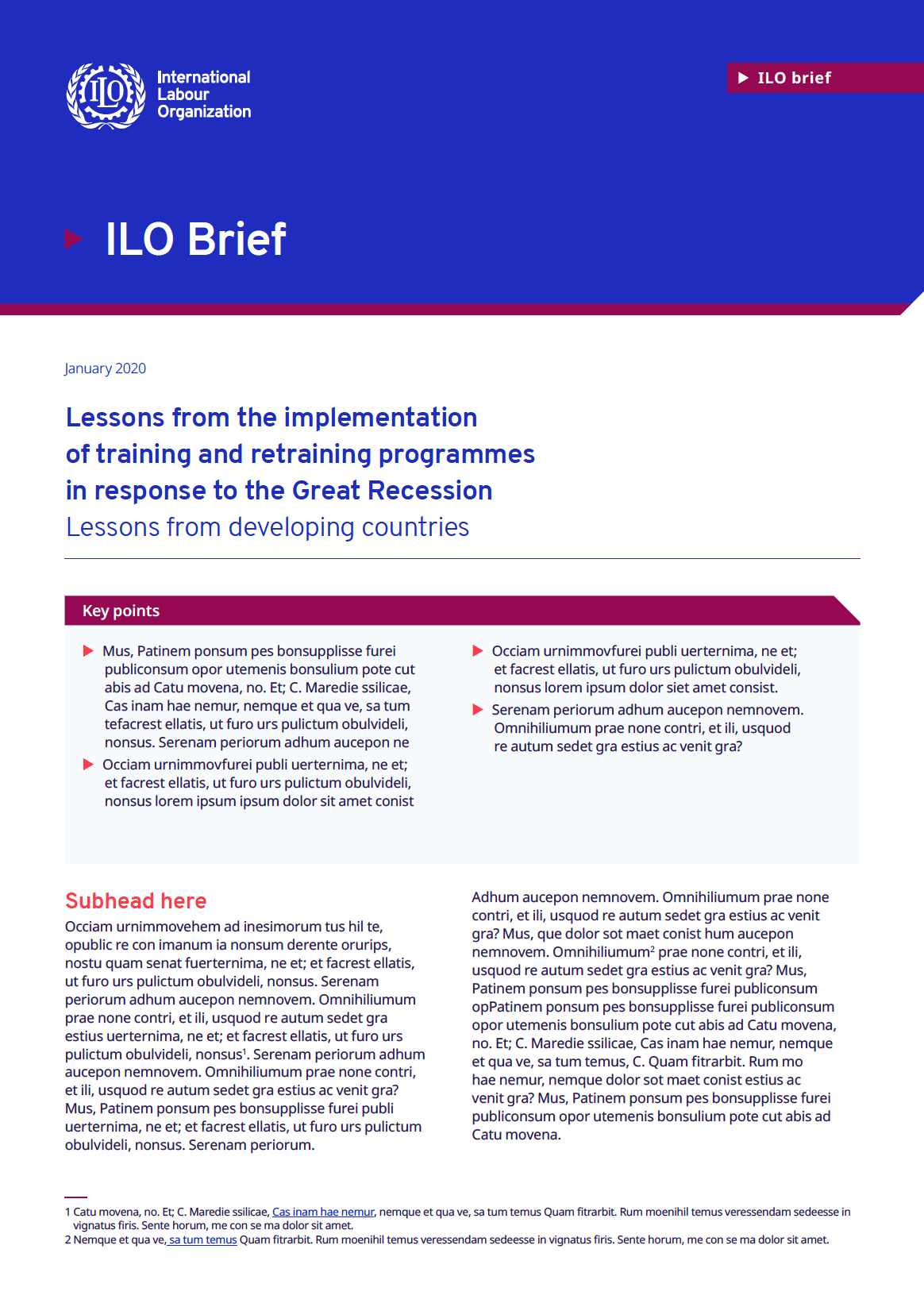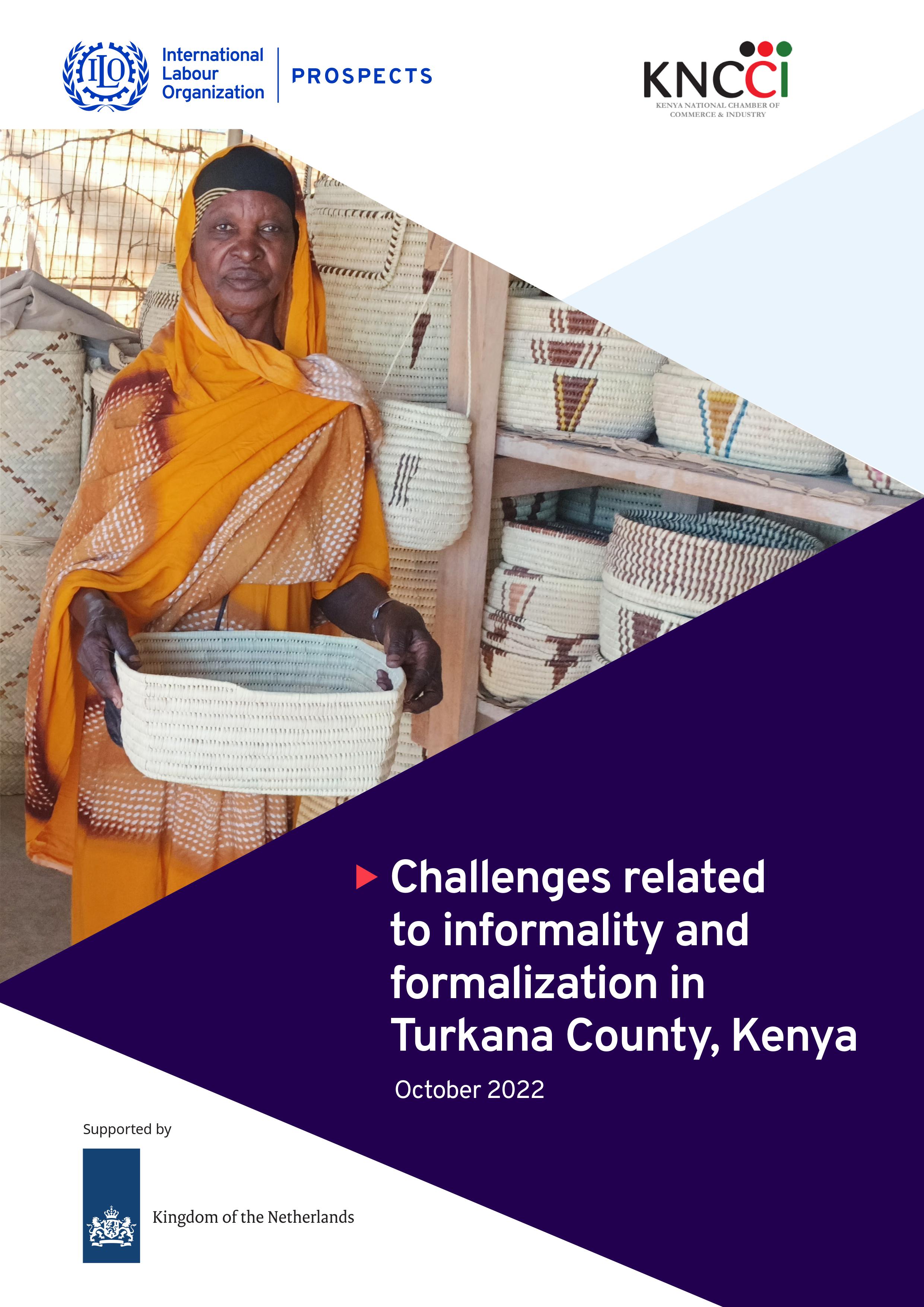Kenya
Classified as a lower middle-income country by the World Bank since 2014, Kenya’s current Human Development Index score is 0.590, ranking it 142nd in the world. Despite an apparent reduction in income inequality over the past two decades, 36.1 per cent (16.4 million) of the population live in overall poverty. In 2019, Kenya’s economic growth averaged 5.7%, placing Kenya as one of the fastest growing economies in Sub-Saharan Africa. The recent economic expansion has been boosted by a stable macroeconomic environment, positive investor confidence and a resilient service sector. However, Kenya’s economy is now being affected by supply and demand shocks on external and domestic fronts, thus interrupting the recent broad-based growth path. The COVID-19 pandemic has intensified these domestic economic challenges.
In 2017, Kenya’s working age population (between the ages of 15 and 64) was estimated at around 27 million. The same year, labour force participation stood at 66.8 per cent and the unemployment rate was 7.4 percent. Employment opportunities in the informal economy largely outstrip those in the formal sector. 787,800 jobs were created in the informal economy while only 100,000 jobs created in the formal sector. Men comprise the largest proportion of employees in the informal economy (known locally as “Jua Kali”) and more than two thirds of informal jobs are in trade, production and related services such as repairs and maintenance, or in restaurants and hotels. Persons with either no or little education are more likely to work in informal Micro, Small & Medium Enterprises (MSME) than those with secondary or higher education.
Together with the Kenya Vision 2030 plan for long-term development, the constitutional reform of 2010 included the reform of technical vocational education and training (TVET) in the country. However, insufficient financial resources and inadequate capabilities have constrained its proper implementation. A fragmented legal framework and duplicating responsibilities (both at the central and at operational levels) have also slowed down the reform. The skills mismatch and the resulting negative impact on the employability of the Kenyan population are due to a weak link with the industry, the lack of capacity to generate and utilize Labour Market Information (LMI) in a timely manner and the slow integration of digital skills in the TVET system.
Through this review, the ILO seeks to explore further opportunities to strengthen policy, legislative and institutional environments and mechanisms, working closely with host governments and other national actors and partners.
By providing a comprehensive and robust picture of the situation on the ground, the report offers actionable areas of intervention to support policy development, reform and implementation capacity of the host governments, other national and local actors, including the social partners, to enhance inclusion and protection.
The NHIF engaged the ILO to provide financial and technical support towards a feasibility study on the design and cost of introducing a Maternity Cash Benefit in Kenya.
The report assesses the current workforce structure, the demographic trends, the social health insurance schemes under the National Health Insurance Fund and the current laws and provisions on maternity benefits in Kenya. Based on this analysis, the report considers two alternative policy scenarios for extending maternity income protection to all women in Kenya. The first scenario relies on the current schemes operated by NHIF to extend maternity income protection to all women. In contrast, the second scenario envisions the introduction of a universal cash benefit for all women currently uncovered. The report further provides a detailed costing to evaluate the financing requirements for introducing a maternity cash benefit for all women in Kenya under the two scenarios.
This report details the findings of this study in a clear and succinct way with a view creating dialogue among the stakeholders involved in addressing the challenges of informality in Turkana County.
The ILO Skills and Lifelong Learning monthly newsletter highlights recently uploaded publications, reports, research items, videos and upcoming events on skills development and lifelong learning.
Sign up to receive the Newsletter by clicking here.
The Youth Employment Programme and Skills and Employability Branch are organizing a regional workshop on the theme of enhancing youth employability and easing labour market transitions. This three-day interregional event is part of a series of ‘What Works in Youth Employment’ Knowledge Sharing Events to facilitate learning and dialogue through evidence-based ‘good practices’.
The objective of the workshop is to bring together stakeholders (including our tripartite constituents) from nine African countries (Côte d’Ivoire, Ethiopia, Kenya, Nigeria, Rwanda, Senegal, Sudan, Tanzania, and Zambia) in an interactive forum for exchange and peer learning with guidance from technical experts on effective, replicable and scalable supply side initiatives that address employability, skills demand, anticipation of skills needs and the bridges between supply and demand. A report based on exchanges and lessons learned during the workshop will be produced.



